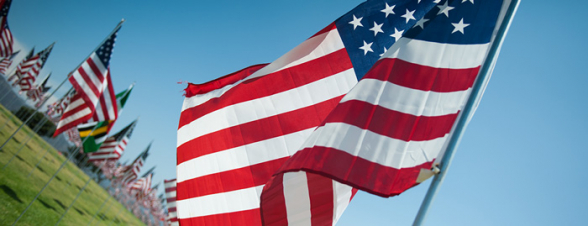Post-Election Thoughts
The 2016 election, like the election of 1948, has been an upset. Those “in the know” earnestly expected Hillary Clinton to win. Donald Trump’s victory has surprised most. But should it be that surprising?
The United States and Great Britain have shared a “special relationship” for some time. The term, coined by Winston Churchill in 1944, has been applied most notably in recent memory to Margaret Thatcher and Ronald Reagan. The term reflects more than a close political alliance; it also reflects a cultural similarity and shared ideology. Returning to our example of Thatcher and Reagan, in 1979 Britain voted the Conservative party to power, headed by Margaret Thatcher on a platform of free trade, deregulation, open markets and, of course, fighting communism. At that time, the US and Britain were experiencing an unprecedented period of stagflation with 14% inflation and little market growth; to Britain, the Conservative party’s platform seemed the answer. The following year, Republican Ronald Reagan won the U.S. Presidential election on essentially the same platform. Thatcher and Reagan’s policies slowly turned the economies of the two nations around and resulted in a long bull market.
Though free trade, deregulation, and open markets did end the stagflation of the 1970’s, over the long-term it had some unintended consequences. Manufacturing and commodities production moved overseas. We have all seen the pictures of the abandoned coal fields of Pennsylvania and the empty automotive factories of Detroit. Many viewed manufacturing and commodities production as a thing of the past and saw technology and science as the drivers of the economy of the future. They disregarded the growing feeling of disenfranchisement in rural and post-industrial America, fueling a populist uprising in the Republican Party. Thus, Trump’s victory came as a surprise. However, this election may not have been as surprising if we had also seen the abandoned coal fields of Wales or the empty automotive factories of Longbridge, England.
Earlier this year, Britain experienced a similar upset. When a referendum to leave the EU, known as Brexit, passed, it was carried by the post-industrial and rural areas of England. Brexit represented a populist uprising against the establishment and demonstrated the widening feeling of disenfranchisement by the working class. Perhaps this should have been a signal to us that Clinton was in for a tougher fight than we thought.
So what does the election of Donald Trump mean for the markets? As we have said, uncertainty breeds volatility. The markets attempt to predict different industries will be affected by the future policies of a newly elected president. Where the president-elect does not adhere to traditional party orthodoxy, the markets find it exceedingly difficult to predict the effect on different industries. This makes pricing securities challenging and causes market volatility.
While market swings may be substantial, we do not believe that a collapse is imminent. Trump will not take office until noon on January 20, 2017. Once Trump is in office, his agenda will be checked by Congress. Though the Republicans control both houses, their margins are slim and there are substantial divides within the party between Trump’s anti-establishment populists and establishment and moderate Republicans. This means it is less likely that any of Trump’s more radical agenda items will get through. Though the Republicans will now be able to appoint the next Supreme Court Justice; that Justice will still be a jurist and make decisions based on the law, not the President’s political agenda. Remember that it was Chief Justice John Roberts, a Bush appointee, who wrote the majority opinion upholding most of the Affordable Care Act (Obamacare). Justices Burger, Blackmun, and Powell (all appointed by Republican President Nixon) and Justices Stewart and Brennan (all appointed by Republican President Eisenhower) all voted in favor of Roe v. Wade.
Trump’s victory will cause volatility. But it is not as scary or surprising as many in the media would have us believe. Hold tight. This too shall pass.

